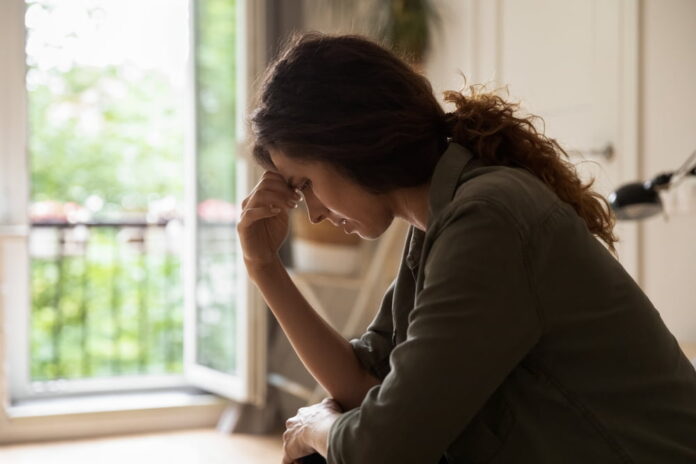No one plans to suffer an accident or injury as part of their week. And yet, accidents do happen, and frequently; home accidents alone cost the UK over £45 billion per year, and, sadly, 6,000 people per year die as a result of accidents at home. This is to say nothing of the hundreds of thousands of workplace injuries suffered each year, or the extremely common slips and trips in public places that lead to A&E visits.
The physical injury from an accident is not the only form of damage that occurs. There can also be mental trauma attributed to it, whether depression and anxiety in recovery or PTSD from the accident itself. Mental health needs to be managed just as physical health does;
how can you seek to overcome poor mental health after an accident?
Seek Therapy
While there are myriad ways in which you can help lighten your own mental load – ways we’ll be looking at shortly – there is no more effective way to manage it than seeking out therapy. Unfortunately, waiting lists for NHS self-referral programmes remain long, but if you can afford private sessions with a registered and accredited therapist, you absolutely should take them. At its most basic, therapy can be a useful way to get things off your chest; at its most useful, it can give you some incredible tools with which to work through your own feelings.
Surround Yourself With Love
Glib as it sounds, a problem shared truly is a problem halved. Your loved ones will be there for you through thick and thin, and your post-accident struggles are no different. Whether you need help getting around, an exercise buddy or just a shoulder to cry on, reaching out to friends and family can make all the difference. Making sure to actively keep up with your loved ones can also be a welcome distraction – especially where it is otherwise easy to sit alone, and spiral as a result.
Seek Closure
Recovery from an accident is multi-faceted process, and even with all the goodwill and self-help resources available to you, it can feel difficult to approach “wellness”. There may be other barriers in the way of your recovery, one of which might be the nature of the accident in question. If it wasn’t your fault – whether at work or in a public place – there’s a chance you could be eligible for compensation through civil action.
You might talk to a solicitor about this for two distinct reasons; the first is that civil action could be a good way to hold those liable to account, and to get closure on the hows and whys of your unfortunate accident. It is also true that the compensation money could lighten stresses in other areas, such as covering bills or giving you the money to take a restful holiday.
Physical Health
We’ve already established that there’s a link of sorts between mental and physical health, your accident having brought on mental conditions in addition to your physical injury. Well, this can work in the opposite direction too. Mental health can directly correlate with physical health, especially where exercise is concerned. The same endorphins that make you feel like a million pounds after a good run can help combat more negative thinking patterns, giving you the strength to move forward with conviction.
Read Also
- The Role of Ingredients in Your Skincare: What to Look ForSkincare works best when you understand what goes into the products you use daily. Ingredients form the foundation of every formula and determine how the skin reacts over time. Each cream, cleanser, or serum has its own role, determined by its ingredients. Learning what to look for helps you pick products that help skin and… Read more: The Role of Ingredients in Your Skincare: What to Look For
- Your Guide to Finding a Trusted DentistChoosing the right dentist in Sandgate or your area is crucial for maintaining good oral health and achieving a confident smile. With countless dental practices to choose from, patients may find the task daunting. Data from the American Dental Association indicates that there are over 200,000 practicing dentists in the United States, highlighting the importance… Read more: Your Guide to Finding a Trusted Dentist
- Achieving a Defined, Balanced Facial Contour in SingaporeA well-defined jawline and a gently tapered lower face — commonly referred to as a V-shaped face — is a look many people aspire to. In Singapore’s beauty and aesthetic scene, treatments that help refine facial contours have grown in popularity as more individuals seek subtle, natural enhancements that boost confidence and balance facial features.… Read more: Achieving a Defined, Balanced Facial Contour in Singapore
- The Wellness Blueprint: How Your DNA Holds the AnswerGenetic testing is revolutionizing preventive healthcare by offering insights into individual health risks. By analyzing DNA, these tests provide a personalized health blueprint that can guide lifestyle and medical decisions. This approach, often referred to as DNA wellness testing, helps to optimize health naturally and prevent potential diseases. In recent years, genetic testing has become… Read more: The Wellness Blueprint: How Your DNA Holds the Answer
- Exploring the Benefits of Infusion Therapy in OKC: The Ultimate GuideUnderstanding Infusion Therapy: A Deep Dive into Its Purpose and Process What exactly is Infusion Therapy? Infusion therapy is an advanced medical treatment that delivers medication and nutrients directly into the bloodstream through a vein, typically via an IV (intravenous) line. This method is particularly beneficial for patients who require a concentrated dose of medication,… Read more: Exploring the Benefits of Infusion Therapy in OKC: The Ultimate Guide






